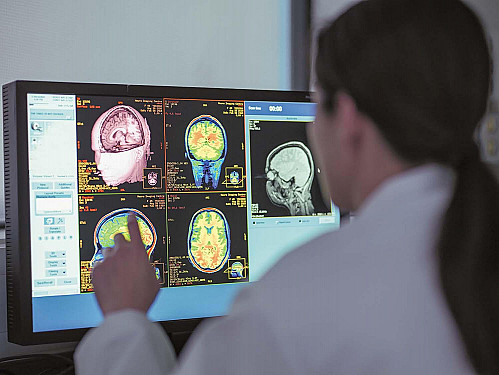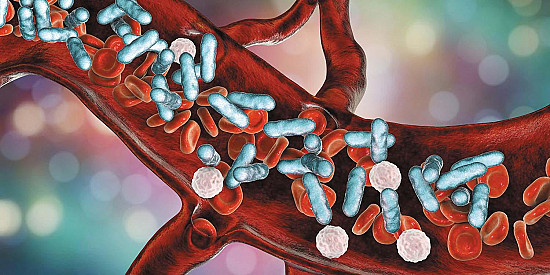Sepsis symptoms: Recognizing the need for urgent medical care
- Reviewed by Howard E. LeWine, MD, Chief Medical Editor, Harvard Health Publishing; Editorial Advisory Board Member, Harvard Health Publishing

Sepsis is a serious condition that most often occurs when an infection or toxic substance overwhelms your body's immune system, or when your immune system overreacts to an infection, toxic substance, or unidentified trigger.
While some types of infections pose a greater risk of sepsis, any serious bacterial, fungal, or viral infection can unexpectedly bring about the condition. Sepsis can also result from an extreme immune response to other situations, such as severe burns.
If sepsis is not treated, it can lead to organ failure and even death.
Symptoms and signs of sepsis
Symptoms of sepsis can vary significantly between people. They can come on very slowly or more suddenly. Early symptoms may mimic an infection, while advanced symptoms can be more severe. Symptoms include:
- fever
- sweating for no reason
- shivering
- very fast breathing
- rapid heart rate
- confusion
- low blood pressure, or feeling lightheaded and dizzy
- abnormal blood tests including white blood cell counts, electrolyte and blood sugar levels, liver, and kidney function.
When sepsis is triggered by an infection, other symptoms can be specific to the type of infection you have. For example:
-
respiratory tract infection or pneumonia:
- throat, neck, or chest pain
- wheezing
- cough
- coughing up phlegm
-
urinary tract infection (UTI) or kidney infection:
- pain with urination
- strong odor, or changes in the color of your urine
- urinating more often than normal
- pain in your lower belly, pelvis, or back
-
skin infection (cellulitis):
- red, warm, painful, or swollen skin
- pus draining or collecting below the skin
-
digestive tract infection:
- pain or swelling in your belly
- diarrhea
- vomiting.
Septic shock
In extreme cases, sepsis can lead to septic shock. During septic shock, blood pressure drops to dangerously low levels, causing organs such as the brain, lungs, heart, liver, and kidneys to stop functioning normally. Septic shock can lead to death.
Symptoms of septic shock include:
- difficulty breathing
- cool, clammy, or blue skin (cyanosis)
- feeling unable to stand upright
- passing out
- urinating much less than normal
- extreme confusion or difficulty staying awake.
What causes sepsis?
Under normal circumstances, the immune system recognizes and contains foreign substances that invade the body. Most often these invaders are infectious agents.
Sepsis happens when the immune system cannot get control of the infection, or the immune system goes into overdrive beyond what the body needs, causing more harm than the original infection.
With sepsis, our white blood cells become dysregulated, spewing out chemicals that can disrupt blood circulation to, and directly damage, vital organs.
Any type of infection, including bacterial, viral, and fungal infections, can cause sepsis. Sites of sepsis include infections of the:
- bloodstream
- lung
- skin
- joints
- urinary tract, kidney, or bladder
- digestive tract
- catheter sites.
Sepsis can occur in any age and population. Risk factors for developing sepsis include:
- older or younger age: adults 65 or older and children younger than 1 year are at increased risk
- immune modulating medications needed to treat cancer or autoimmune diseases or to prevent rejections of transplanted organs
- diabetes
- advanced kidney or liver disease
- severe burns
- having thin tubes such as catheters, IVs, or cancer ports in the body.
Can sepsis be prevented?
There is no way to prevent sepsis. However, recognizing the symptoms of sepsis early, before blood pressure gets too low or organs become damaged, can improve the prognosis.
Since infections are the most common trigger for sepsis, minimizing your risk of serious infections means less chance of ever developing sepsis. Keep your body healthy through diet, exercise, routine vaccines, and regular follow-up with your doctor.
About the Author

Jennifer Fisher, MMSc, PA-C, Health Writer
About the Reviewer

Howard E. LeWine, MD, Chief Medical Editor, Harvard Health Publishing; Editorial Advisory Board Member, Harvard Health Publishing
Disclaimer:
As a service to our readers, Harvard Health Publishing provides access to our library of archived content. Please note the date of last review or update on all articles.
No content on this site, regardless of date, should ever be used as a substitute for direct medical advice from your doctor or other qualified clinician.















